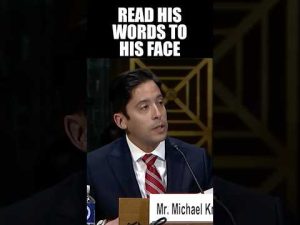On Veterans Day, Pat McAfee did what too many mainstream anchors would never dare: he put the Commander-in-Chief on the air and let America hear him straight from the source. President Trump joined The Pat McAfee Show in a wide-ranging conversation about sports, the military, and the state of college athletics, reminding viewers that real journalism sometimes means talking to powerful people, not canceling them.
Trump used the platform to make concrete points about college sports, including support for tighter salary controls to protect smaller programs and preserve the broader athletic ecosystem, and he even weighed in on NFL rules he thinks are hurting the game. That kind of policy talk on a sports show proved McAfee’s format can handle substantive debate and not just performative outrage.
As predictable as the sun rising, the left went into full outrage mode — but McAfee pushed back and reminded audiences why he’s built a loyal following: it was Veterans Day, this was the Commander-in-Chief, and he’d happily have the conversation. Conservative viewers saw a host defending free speech and refusing to bow to partisan pressure, while liberal pundits resorted to hysterics and personal attacks instead of engaging with the issues raised.
What this episode made crystal clear is something ESPN insiders and corporate executives already know: Pat McAfee runs his show his way, and he can bring the guests he wants without begging permission. Voices like Sage Steele and Jason Whitlock pointed out on the Fearless podcast that McAfee’s influence has given him leverage over the network that would have been unthinkable just a few years ago.
Make no mistake, this isn’t just about one interview; it’s about who controls the cultural conversation. McAfee calling out an ESPN executive and walking away untouched was a wake-up call that the old gatekeepers no longer call all the shots, and that’s good news for patriots who are tired of corporate media censorship.
The reaction from the usual suspects — furious op-eds and cries of “platforming” — only proved the point: the left fears open conversation when it doesn’t go their way. Instead of canceling talented hosts who drive audiences and patriotism, networks should celebrate voices that actually connect with the American people and defend those who stand with our troops.
Pat McAfee’s move was more than a ratings stunt; it was a patriotic act of defiance against the media class that thinks it can police every airtime. If conservatives want to win the culture, we back hosts who speak plainly, welcome real debate, and put America first — and we refuse to be intimidated by the tantrums of the elite.







